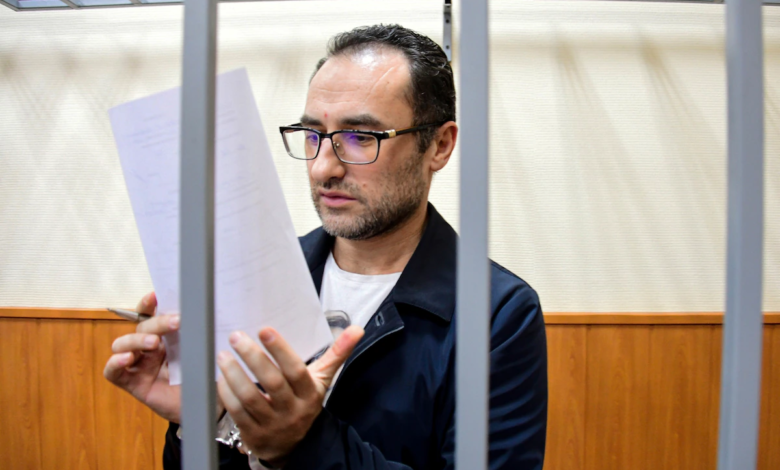Moscow Court Sentences Russian-Born US Citizen to 15 Years in Prison for Espionage
In a recent development from Moscow, a local court has handed down a 15-year prison sentence to Gene Spector, a US citizen who was originally born in Russia, on charges of espionage. This sentence adds to a previous conviction where Spector was serving time for bribery.

n a recent development from Moscow, a local court has handed down a 15-year prison sentence to Gene Spector, a US citizen who was originally born in Russia, on charges of espionage. This sentence adds to a previous conviction where Spector was serving time for bribery.
The case, which has garnered significant attention, was conducted behind closed doors due to the sensitive nature of the allegations. Details about the specifics of the espionage charges have not been publicly disclosed by Russian authorities, maintaining the secrecy surrounding the case.
Spector, previously known as Yevgeny Mironovich in Russia, was already in custody, having been convicted of mediating a large-scale bribe that involved an aide to former Russian Deputy Prime Minister Arkady Dvorkovich. The espionage conviction adds 13 years to his previous sentence, totaling 15 years to be served in a strict-regime penal colony. Additionally, a significant fine of 14.1 million rubles (approximately $140,500) from his earlier bribery conviction was upheld by the court.
This sentencing comes at a time when relations between Russia and the United States have been strained, particularly following Russia’s actions in Ukraine. The US State Department has yet to comment officially on this specific case, but it adds to a series of incidents where US citizens have been detained in Russia on charges that have sometimes been described by the US as politically motivated or “hostage diplomacy.”
This case underscores the ongoing tensions and the complexities of international relations, particularly concerning legal actions against foreign nationals. The outcome of this trial might further complicate diplomatic relations, although it also highlights the secretive judicial practices in cases deemed sensitive by the Russian state.




